

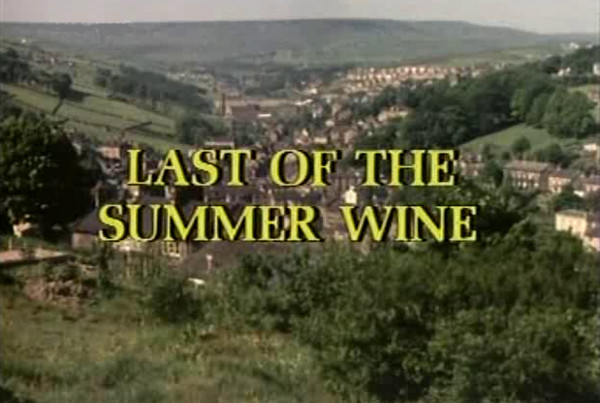
However, is it fair to judge a series that you've never really sat and properly watched, even if it seems to have been on forever? As a result, The Anorak Zone took a challenge... to watch the first season of Last of the Summer Wine with an open mind. The DVD of the series can be ordered online from Amazon. The first season aired from November-December 1973... please join me as I rank the episodes from worst to best...
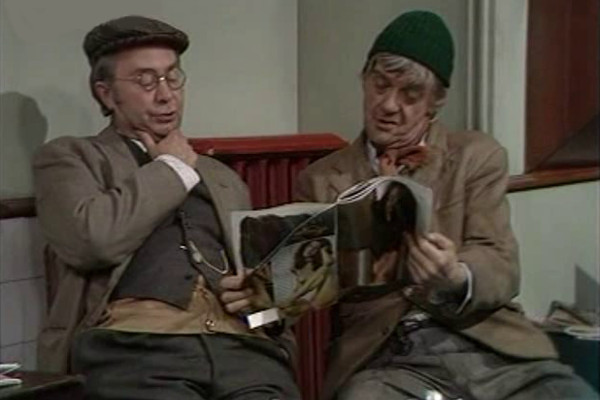
One thing that really drags down the reputation of Last of the Summer Wine is how ubiquitous it became. Although the series didn't enter a consistent "one season every year" cycle until 1997, it had been pretty much made continuously since 1973, yet the whole of the 70s and 80s combined make up less than a third of its run. Consequently the most famous "third man" of the trio with Compo and Clegg – the brilliant Brian Wilde as Foggy – appeared for less years and fewer episodes than Stephen Lewis, a man who is far more associated with On The Buses.
The first two seasons have a different line up, with the third man here in the form of Cyril Blamire (Michael Bates), who went on to be famous in brownface for It Ain't Half Hot, Mum. Blamire has a lot of contempt for the scruffy nature of Compo (Bill Owen), and it makes for a curious element of the first season: everyone Compo seems to meet, including his closest friends, discuss his appearance on a regular basis, almost as if they're not long-term associates who know each other well, but characters in a sitcom doing the routine because it's new to the audience.
The boxset of the first two seasons was released with a 12 certificate, and does contain some content and language that will surprise those used to the more placid, "family friendly" series of later years. The show was post-watershed at this stage, and as well as mild swearing throughout many of the instalments, here we open with a barber's scene that includes Compo looking at glamour magazines, Clegg discussing rape and the barber bringing up the subject of prostitution. Perhaps the biggest shock of the run here is hearing Clegg (Peter Sallis) saying the word "orgasm" in the pilot.
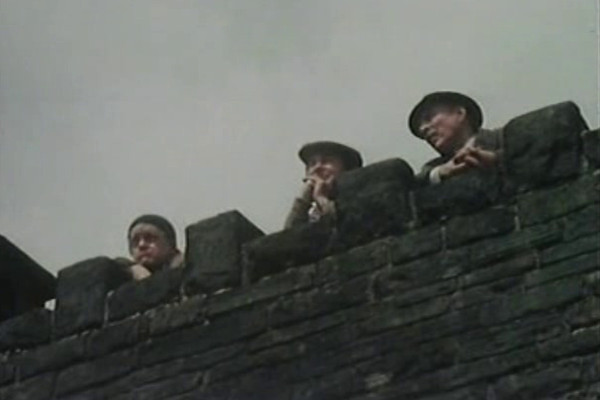
The beauty of these early episodes - and the tragedy of where the series went - is that they're not often plot-based. The initial concept for the series, explored here, is three lonely men, one of them a widower, another whose wife left him, and a third who appears to be a permanent bachelor, all passing the day together and reflecting on philosophical concepts, mainly death. It sounds more like Beckett or Pinter, and, perhaps in its finer moments, it might be. But the programme gets too bogged down with repetitive jokes about wellies, and cheap northern caricatures, and eventually the ensemble programme it became was nothing like its origins.
This particular episode is so plot free that the title is a phrase that Blamire uses to describe Compo in a café scene, and for no readily apparent reason. It's a show about men filling in time between life and loneliness, not Compo taking up hand gliding or water skiing (two actual plots from later years). This particular episode ends on a lovely moment where Clegg (Peter Sallis) ponders over whether they've already died, and are experiencing the afterlife. After they debate whether they're in Heaven or Hell, Clegg decides that they can't be in Hell, as they're in Yorkshire... as it pans out to a shot of the beautiful Holmfirth countryside.
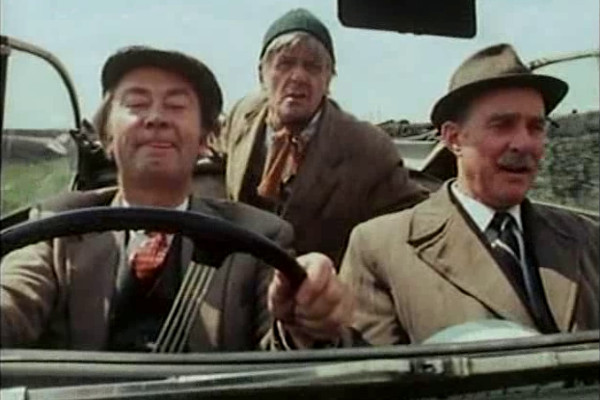
"Compo down a hill in a tin bath." Detractors of Last of the Summer Wine will claim this happened every week, while supporters will state this only actually happened once, and that it was when the series had been on the air for twenty years. In a way, they're both right, as, while the tin bath incident did, indeed, only happen on a single occasion, it's often used as a shorthand for all the contrived slapstick moments used to end one of the later episodes. Even as early as series two we got an episode largely based around Compo on a motorbike, and, while I haven't seen a great deal of what followed, every time I did happen to tune into a later episode, it ended with some contraption, experiment or invention, nearly all involving Compo in physical distress, and nearly all being hill-based.
While this episode doesn't introduce any slapstick, it contains a worrying foreshadowing of where the series will go: from two off-screen car crashes, to a driving simulator and a woman pretending to have a large dog kept behind doors, it's fine in and of itself, but is a worrying sign of things to come. Look out too for how unusually aggressive the passive philosopher Norman Clegg is in this episode: he not only threatens a young child, but speaks of his deceased wife: "God rest the silly bitch".
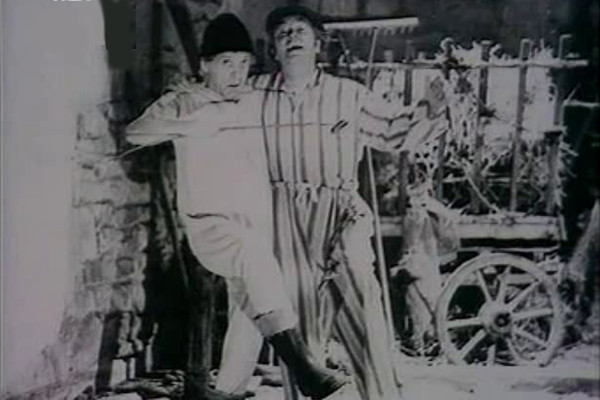
The beauty of this first series is that the programme doesn't seem to feel the need to go all out for laughs. The later series were often full of wall-to-wall screeching and roaring from the audience, whereas many of these first episodes have long snatches of dialogue that are just earnestly philosophical with no need to trade off on punchlines.
It also works the other way, in that laughs are garnered on merit, and, unlike the modern age where audience laughter is sometimes edited into jokes that don't quite work, here we get to see regular periods of zero reaction from a studio audience who aren't continually amused. Almost unthinkably today, there's no editing done to spread what scant laughter there is, as this series closer goes by with long stretches of laughter-free moments, a far cry from the amped-up audiences of the programme's later days.
If there's one real complaint with the programme it's that if the male characters sometimes veered towards broad characterisations, then the women fared even worse, frequently being screaming harridans or shrewish old maids. This is typified here with a line from Blamire, criticising Compo's success with women: "Your only experience is being confined with the oddest assortment of females outside a women's lib demonstration." On a last point of trivia, then look out for Blamire claiming to be undertaking "Hindu meditation"... actor Michael Bates was born in India, and his first language was Hindi.
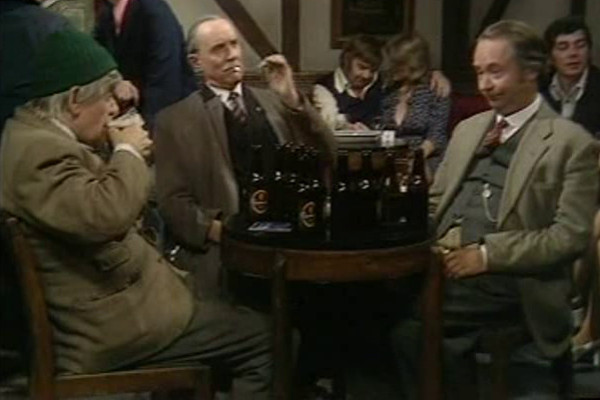
An episode in which Compo meets up with some unspecified relatives and they take a look at a stately home. There isn't much in these episodes that seems out of place by today's standards, though some viewers may take issue with three episodes, including this one, containing the word "poof". Blamire talking about being born too late for the age of elegance causes Compo to mock "why don't you save up and become a poof?", but there doesn't really seem to be any edge or malice to these inclusions.
A fairly meandering episode ends with a poignant moment where Clegg says, "You don't get a lot of time given for being 19", and they all nod and drink a toast, regretting the years gone by. It's a sad, reflective moment on a series that increasingly didn't allow for them.
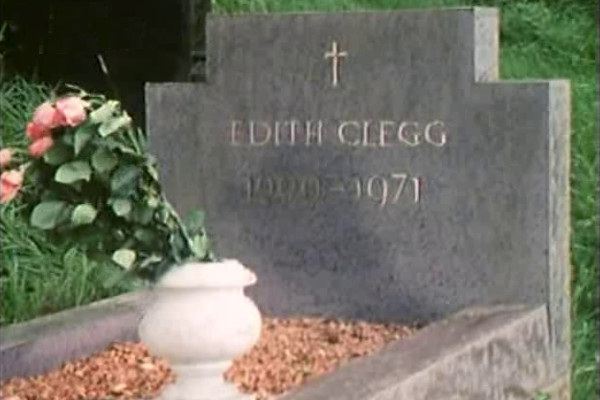
The pilot episode of Last of the Summer Wine aired on 4th January 1973 as part of the BBC's Comedy Playhouse. The format had produced a huge number of sitcoms for the corporation, including Steptoe and Son, Till Death Do Us Part and The Liver Birds. This episode contains more of the shows' dark undercurrent, with a shot of Clegg's wife's grave, and philosophical ruminations like "Life's like that... a complex texture of conflicting moralities" and "Will there be Wednesdays when you're dead?"
So, the question must be asked before getting to the first-placed episode in this article: is Last of the Summer Wine as bad as previously believed here at Anorak Towers? Well, no, not really. Although there wasn't a huge amount of laughter attained, all comedy is subjective, and the season was interesting, even if not quite hilarious. However, I also watched a few of the later episodes from its final years for context, and there was little arguing that it became a shadow of what it was, and that its final axing in 2010 was no great loss.
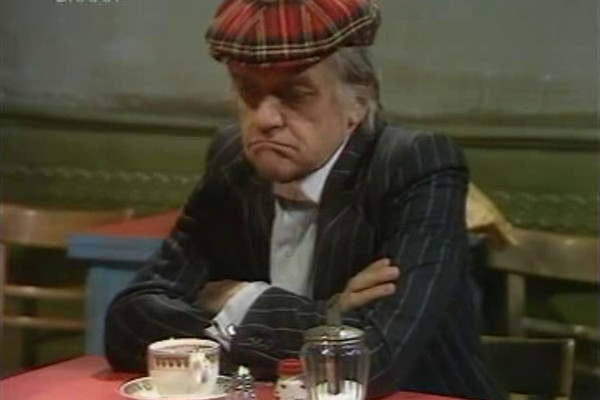
Even as a small child, way before the age of the pejorative "political correctness", I found it uncomfortable seeing a seedy-looking man on television who seemed to spend the best part of his day sexually harassing women. Compo was the major turn off of the programme for me, so an episode where he's full of "sap" seemed like a dire prospect.
Thankfully Spring Fever sees Compo against type, depressed and dejected, and wearing a suit and aftershave in the hope of genuine romance. Although the character is, on the face of it, repellent, there's hints throughout this first series that his downfall was as a result of a nervous breakdown due to his wife leaving him. It's not explicit, and Last of the Summer Wine is never quite the Waiting For Godot it perhaps wants to be, and perhaps should be. But this episode manages to capture something of the darker side of Compo, a depressed man blighted by isolation. Credit must be given to the actors in this series, with the revelation that Sallis and Owen both talk in a close approximation of BBC English a testament to how well they immerse themselves in their roles.
Even though the summer of the title refers not to the season but to a metaphorical summer of age, then it's a surprise that the majority of the series, considering all the location filming, aired in the winter months. Only 8 of the 31 series had episodes that aired in summer, and this particular episode – airing on Christmas Eve – ends with a lovely shot of the three friends paddling a raft down a stream. All three sail away into the end credits, and there's not a tin bath in sight.